Don't take a violin audition "for the experience"!

It’s a waste of an audition.
And besides, I have a better idea!
Taking any violin audition is a major commitment, and giving it your full attention lets you experience the highest highs and lowest lows. Auditioning for a professional symphony orchestra raises the stakes because a win means a major life change. The day of the final round is both a solemn occasion and a joyful one; every member of the committee remembers his or her trial by fire, followed by that incredible handshake from the music director. If you want to see how I prepare for a violin audition, check out my New York Philharmonic Audition Challenge.
But what if you just want a taste of the process? What if you’re not up for those extreme highs and lows? What if you’re not sure that you can win this time around, or perhaps don’t even care?
“Should I take an audition for the experience?”
Think about the phrase “for the experience” and you’ll see that there are two meanings. For the first meaning, imagine a couple honeymooning in Paris. It’s their last day in the City of Lights and they’ve got a dinner reservation to catch, but they happen to walk near the Eiffel Tower.
Wife: “Oh, let’s take the ride to the top!”
Husband: “It’ll take too long, and besides, we have to make our 8 o’clock at Chez Snoot.”
Wife: “Come on, for the experience!”
Does she mean that by riding to the top of the Eiffel Tower, they’ll learn something valuable? Something they can apply to future vacations? Maybe she’d like to get better at riding to the top of the Eiffel Tower, and this would let her learn-by-doing? Of course not. She sees an opportunity to do something that she’s never done, something fun that she and her husband can share and remember. Soon the ride will be a memory, but that memory will live on and enrich their lives.
Surprisingly, this is what some people mean when they talk about taking an audition for the experience. They may not know that this is what they mean, but their attitude toward the audition process makes their state of mind clear. They waffle about taking the audition, even up until a few days before. They talk often with friends about the audition, waiting to hear someone tell them that they should or should not go ahead with it. On audition day, they talk and act like other candidates, but during their few minutes on stage all they are hoping for is an experience they can take away with them.
What a poor experience it turns out to be!
If you’ve ever had such an experience, you probably remember that those few minutes were hardly enjoyable: herded on and off stage like an animal, commanded to play short sections of music under duress, seeing not people but a giant screen. And unlike an Eiffel Tower ride, you faced the ordeal alone. You were prevented from sharing it with anyone else. Your life wasn’t enriched by the experience, and believe me, neither were the lives of the committee members!
Now let’s look at the second meaning for “experience”: the learning process. For example, you might say, “Even though I don’t think I have a chance of winning this particular audition, the process of preparing for and taking it will help me in future auditions.” This is certainly a more productive outlook than the first one. But it isn’t ideal because you aren’t playing to win. You don’t have to know you’ll win, or that you’re definitely better than all the other candidates. But you must know in your heart that you are preparing for the audition in order to win it.
Why? Don’t you still learn from taking an audition and losing?
Of course! The audition process is a terrific learning experience whether you win or not. I have taken more auditions than I have won, and I have learned from them all. But each time I was focused on the win from the very start. Why should that matter? What happens if you aren’t aiming for the win? To answer that, let’s look at some possible reasons that you might think I’m not in this to win:
- You actually do have a good chance at winning, but you suffer from fear of failure. You’re a rare breed, but you do exist! You’re both talented and accomplished, surrounded by friends and colleagues who wonder why you’re always talking yourself down. You do it because you feel that you can perform your best only by hiding your head in the sand: mentally minimizing the task and the risk. This way if you win, great; if not, you didn’t really have a chance anyway.
- You look at auditions as a game of chance. This is much more common. Perhaps you don’t really believe auditions are random, but you figure that with a hundred candidates plus ten different opinions on the committee, it’s random enough. You reason that if you have a good day, you might stand out enough to get to the next round. And then, who knows?
- You know that you’re not prepared, but you figure that it would be a sign of weakness to back out. Hey, every dog has his day! Maybe your lucky number is about to come up. How could you live with yourself if you didn’t follow through? Note: it is impossible to “fool” a committee over the course of a multi-round audition!
What all of these have in common is a disconnect between perception and reality.
Either you perceive your playing to be worse than it really is, or better. Either way, you’re not going into the process with a clear head. In order to make the most of an audition opportunity, it is vital to have a general sense of your level of playing relative to the level of the audition.
How do you develop this sense? How do you match up perception to reality?
The best way to gauge this is to ask a teacher or professional who has heard you play recently. Many teachers, however, are uncomfortable passing any kind of judgment about auditions because they are unfamiliar with the process or the repertoire. In that case, you may have to play for someone else if your teacher allows it. If not, you at least have to be acquainted with players who have recently advanced or won at auditions similar to the one you’re considering.
In other words, know what you’re up against.
This doesn’t need to be a detailed breakdown of strengths and weaknesses, personality traits and lifestyles. Only a general sense of level is needed. Go to myauditions.com and see who has won recent auditions. Then go to YouTube and see how they play. If your capabilities are much lower than theirs, you do not have a reasonable chance to win a comparable audition. But wait! Read on to see how you can turn this into a positive.
This kind of self-evaluation can be sobering, but if you decide to go through with the audition you will subject yourself to much worse along the way! Better to dispatch with it before the process begins.
But why this preoccupation with the win? Isn’t it anti-musical?
Only one person can win each audition, so don’t you almost certainly set yourself up for failure? Now we’re getting to the heart of the matter. The answer is simple; the proof takes some explaining. The answer? By making your goal a win, you will play better in the audition, and reap maximum benefits along the way.
Let’s make one thing clear right away: to win an audition, you have to play musically. This isn’t power lifting, and you can’t crush the competition with machine-like precision. If you’re going to win, it’s got to be with great violin playing. By definition that’s musical; I’ve never been part of a committee who thought otherwise. So you don’t need to sacrifice creative playing to go for a win.
But what about the slim odds of victory? Let’s say that 150 people take your audition, you all play at an appropriate level, and you’ve all made your goal a win. At least 149 of you will leave the audition having failed to achieve your goal. Yet I believe that this is the healthiest of all possible audition scenarios, for all 150 candidates.
Say you’re one of the 149 “unlucky” ones. You followed my audition preparation process but you didn’t win. Would you have been better off with a different goal? You could have set your sights on making as much general improvement as possible during your prep. Or you might have focused on getting more comfortable with some of the excerpts that had bothered you in the past. What about simply completing the audition process, taking it from start to finish regardless of the outcome so that you’d get better at taking auditions? If any of these had been your goal, you would have succeeded rather than failed on audition day.
I love each and every one of those goals, in a vacuum. But during an audition process they are by-products. If what you want is to improve your playing in general, you can spend your time more constructively than preparing for an audition! A two-month recital project or even a weekly mock audition group among friends would be more appropriate and effective. The recital offers you the chance to broaden your repertoire and to play powerful, complete works in front of an audience. The series of mock auditions lets you test yourself many more times than you could in any single audition. It also lets your hear feedback, which is never guaranteed at a professional audition. I often marvel at how many people take auditions without even doing one “dry run” in front of friends, well in advance. This is so valuable, especially for the first few auditions you take.
So does taking auditions make you better at taking auditions?
The answer is yes, but only when the goal is to win each time. The true difficulty in taking a violin audition is facing immense pressure compressed into a short period of time. Your body changes when you’re under pressure, and so will your playing. This is true of even the greatest soloists. And try as you might, you can’t do anything to eliminate the pressure or nerves at an audition. Each player has a “baseline” level of nerves, some higher, some lower, but nobody yet has figured out how to consistently perform with zero. An audition is going to feel different than other kinds of performing. Therefore to get better at playing under pressure, you need to play under pressure. This is why some people take as many auditions as they can. But if that really worked, then these folks should win more than their share. Why don’t they?
Because taking auditions provides far too few opportunities to battle-test yourself! Think about it: even if you took an audition every month, constantly preparing lists of excerpts and refining your concerti, that would give you only twelve times during an entire year to play under stress. And in fact that would be an impossibly draining audition schedule. Realistically, your playing would stagnate or even take a step backward working up the same or similar repertoire for all twelve auditions. After even a few losses your confidence would hit a low point as well.
Besides, if you get used to taking auditions just for experience, what happens the first time you really want to win? Most likely you’ll get really nervous. And all your prior “experience” will have been wasted.
So what’s the solution?
Only take those few auditions you plan to win! But in the meantime, practice constantly at playing under pressure. That means gathering audiences by any means necessary. Have you ever read about stand-up comedians, even the big names, trying out their material dozens of times in tiny clubs before they feel ready? That’s what you need: to workshop your repertoire. Failing that, there is a mental technique you can use to simulate the big day. In fact, you should use visualization as part of any audition preparation. It’s that powerful. You can read about it here.
Make no mistake: it hurts to fall short of a goal. But learning to deal with occasional failure is normal and healthy. You just need to balance it out with lots of success. That’s why you need small goals, those day-to-day challenges that let you climb the performance ladder. In fact, if you’re setting appropriate goals every day during practice, you’ll experience mostly success, and failing once in a while won’t impede your progress at all.
Just remember that you can’t fool yourself by achieving countless small goals only to consistently fail at the big ones. So don’t leave every big goal in the hands of a committee. In other words, set big goals other than winning auditions! Especially when you’re on the audition trail, you need to taste big success, many times over. Set up a recital and make your goal the memorization and performance of a complete program. Set up a mock audition series and learn a complete audition list and a new concerto. You’ll get valuable feedback about where you are and where you need to go. Then you’ll confidently send in your resumé, ready to compete and win.
A violin audition requires an enormous investment of your time, energy, and money. Audition day is rarely fun, and the outcome is all or nothing. If you go into it with an unclear goal, or worse, no goal at all, you’ll find the audition a blunt instrument, smashing confidence and dulling musicality. But when you prepare to win, an audition becomes one of the sharpest tools for improving your playing, optimizing practice, performing under pressure, and of course, taking future auditions. So play to win, and never look back.
Confused about where to start? Check out my free Member Library or contact me today!
Comment section
6 thoughts on “Don't take a violin audition "for the experience"!”
Leave a Reply

Scales: The Road
to Repertoire
Even if you’ve never played a scale before, violinist Nathan Cole of the Los Angeles Philharmonic will guide you through scale routines that meet you where you are, and build progressively alongside your playing.

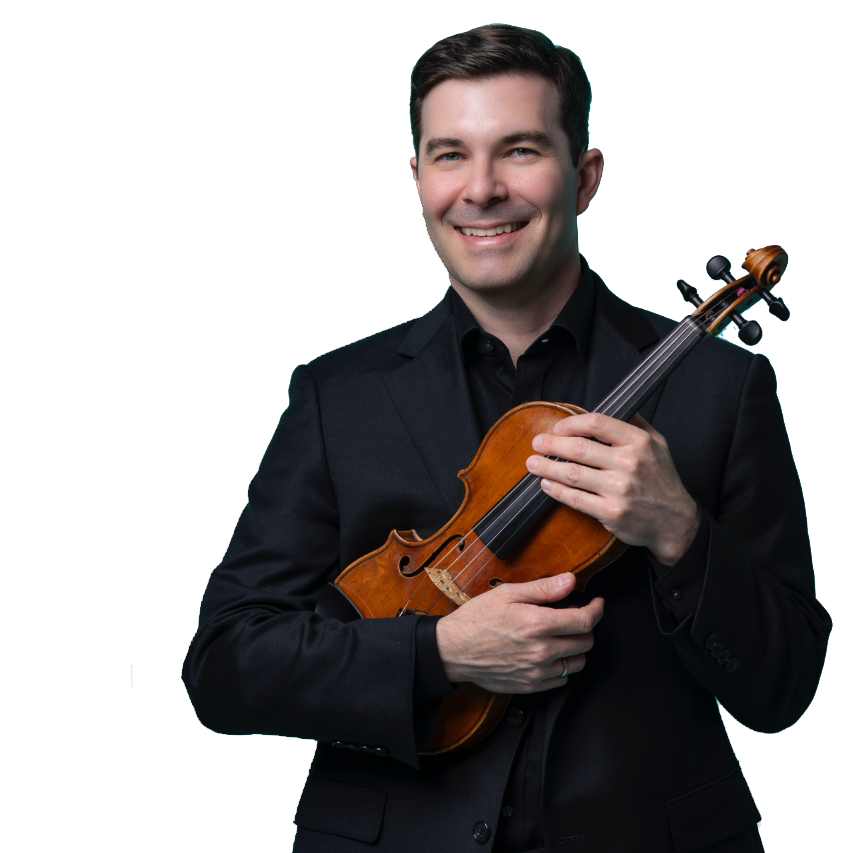

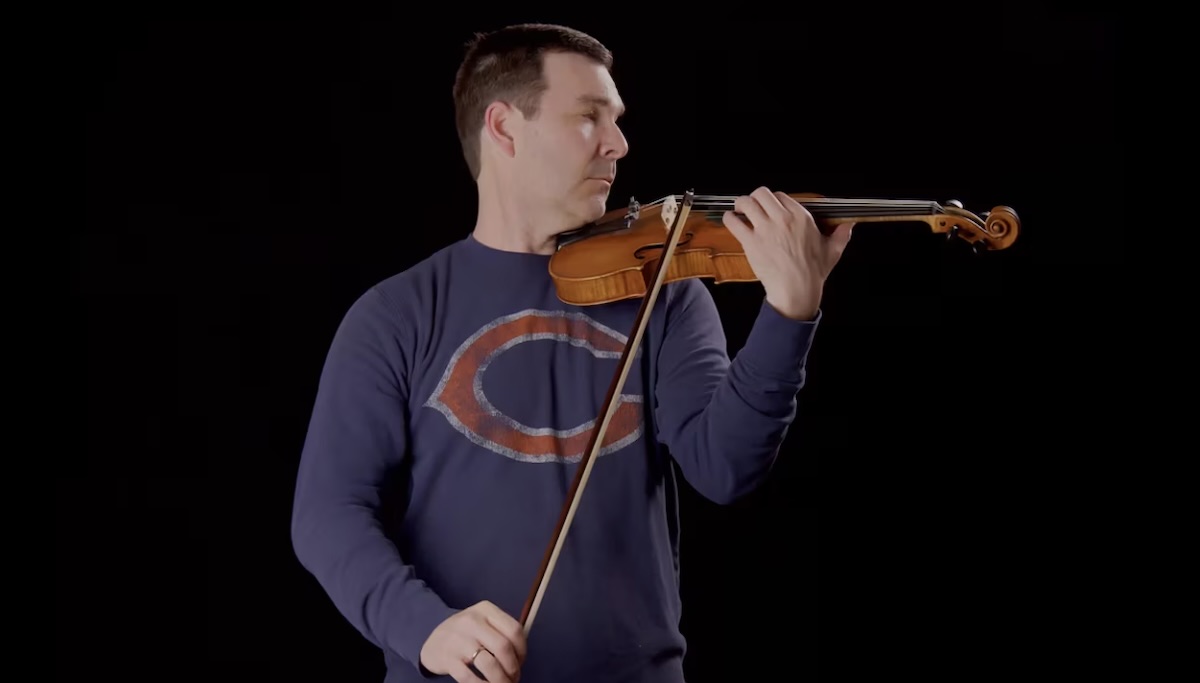
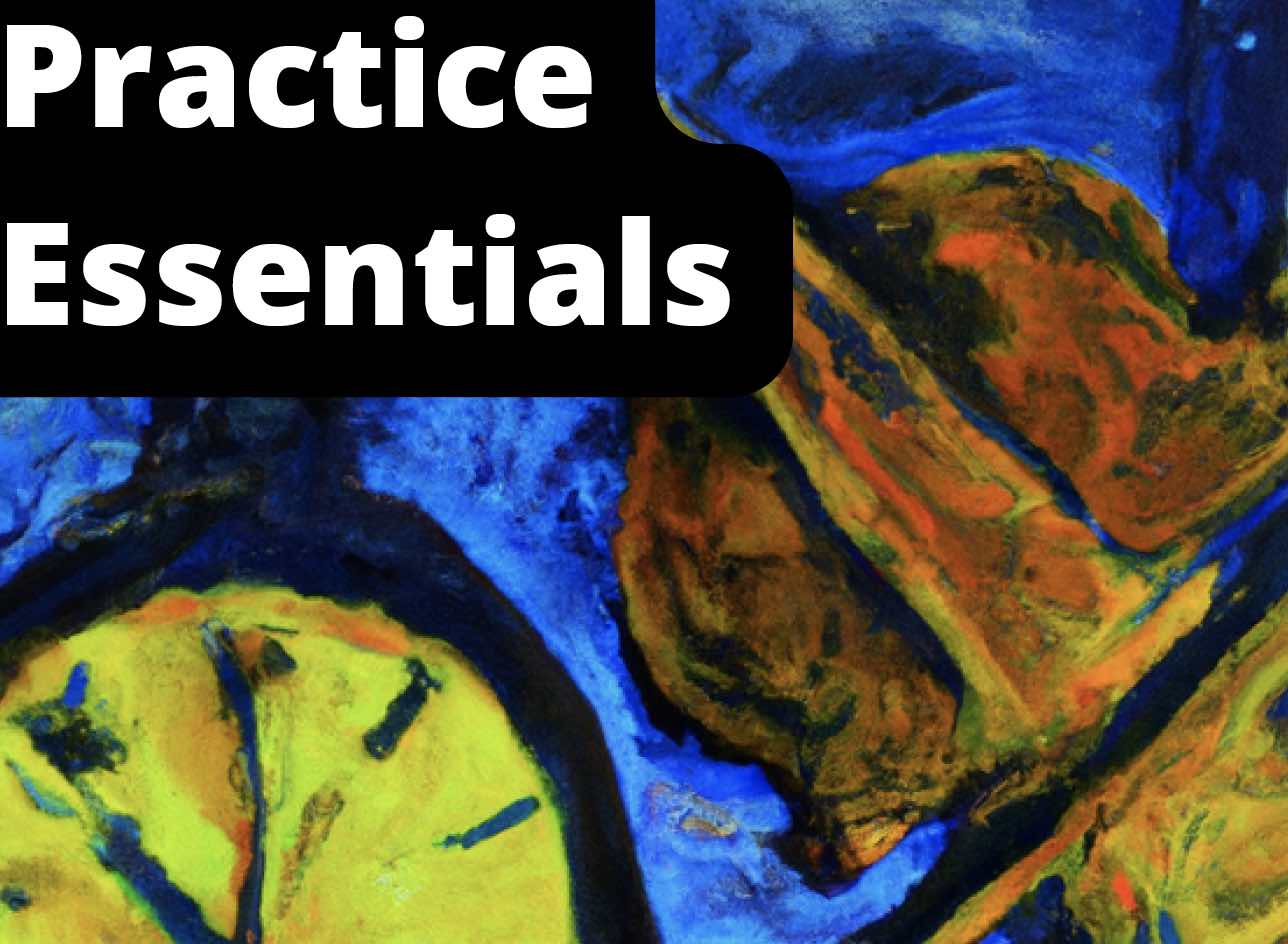

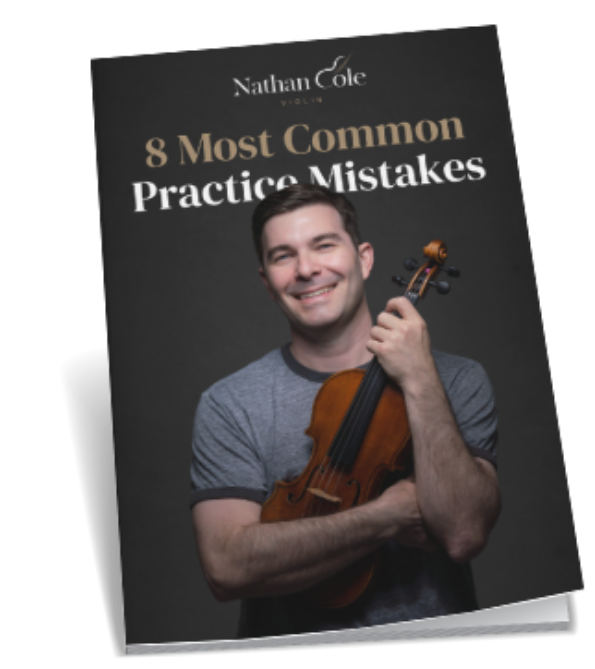
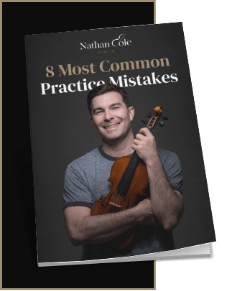
Fantastic advice for anyone who is preparing for a professional orchestra audition. I have experienced both sides of the onstage screen. There is no way to satisfy the musical expectations of every member of the committee so the best approach is to understand and satisfy the message of the music. Of course you must be able to execute under pressure so there’s no such thing as over preparation. The audition environment is not a rehearsal.
Well put!
I wonder how (or if) you would reframe the advice if we’re talking about young players. My daughter, age 10, auditioned for a soloist spot with our community orchestra. As it turns out, she won the audition; but our build-up to it was very different than what you describe. I couldn’t bear to have her think about it in binary (win/lose) terms; so we framed it in terms of preparation, experience, etc. – all the things you advise against.
There is a certain fragility among players this young; but it makes me wonder at what point to parents and teachers need to think about bracing them for the inevitable win/lose dynamic? Undoubtedly, for some, the answer is “right away.” But I’m thinking about the long-term effects of that frame of mind…
Yes, I get used to talking about “auditions” as professional orchestra auditions. Of course, my parents and teachers never mentioned winning and losing when I did competitions and contests as a kid, and I’m grateful for that! But they certainly had me practice and prepare to win, which is basically the same advice I’m giving here for the professionals. Some pros and “wannabe” pros get locked into a losing mindset, where they’re afraid ever to commit totally to an audition, since then they could always tell themselves, “I was only doing this one for the experience”!
thanks for the information
Nathan;
You said ,on another website, that you would “love” to audition a violinist by hearing how he or she plays while playing in an orchestra. Surely this could be done with a high quality contact microphone during orchestra rehearsal, sending the players’ performance to a remote location for the audition committee to hear and record for future reference. The audition could be conducted in a much shorter time with more participants if needed. I know a local sound man in Michigan who could do the job. I haven’t talked to him about this but I will if this interests you.
Sincerely,
Michael Korman